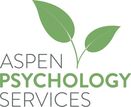Supervision
|
Supervision provides people with a safe, confidential, supportive (and, when appropriate, challenging) relationship in which they can think/talk about their work and wellbeing with a non-judgemental sounding board. The aim is to help people to feel a sense of connection and collaboration, an experience of feeling ‘held’, while supporting them to find e.g. clarity, direction, focus, or enhanced resilience & wellbeing. Sometimes it is simply by giving people a non-judgemental space to offload that enables them to feel valued and validated.
Supervision can be provided for professionals at any level of an organization, individuals who may wish to regularly reflect on their practice, individuals seeking specialist support in a specific skill area (e.g. supervision in relation to the development of coaching skills). |
Aspen Psychology Services Supervisors
APS Supervisors are HCPC Registered Practitioner Psychologists who are capable of supporting people with matters related to practice and wellbeing. We draw upon our professional knowledge and skills, as well as our experience of providing a range of helping relationships (e.g. consultation, coaching, supervision).
Depending on the role of the person we are working with, we may also bring particular experience or knowledge of specific working methods or e.g. professional standards or frameworks, and this knowledge/experience can be drawn upon to inform the conversation. This may not be the case to the same degree in a coaching engagement.
In circumstances where an individual’s needs are such that their issues may be more suited to another form of support, we may be able to make suggestions to signpost other support services.
Depending on the role of the person we are working with, we may also bring particular experience or knowledge of specific working methods or e.g. professional standards or frameworks, and this knowledge/experience can be drawn upon to inform the conversation. This may not be the case to the same degree in a coaching engagement.
In circumstances where an individual’s needs are such that their issues may be more suited to another form of support, we may be able to make suggestions to signpost other support services.
What people have said about Aspen supervision
"This was an excellent session that was incredibly helpful, making me inwardly question why I hadn't accessed this before. The session was skilfully led and reflective links were made to comments or statements that I had made in order to explore aspects more deeply. I was highly impressed with the professionalism and high degree of skill shown in this session. Thank-you." - Primary School Head Teacher
"I found this really helpful to make sense of how I am currently feeling about my work, helping me to see both the negatives and positives and next steps." - Educational Psychologist
"This was a very well-timed session which allowed me to work through some very mixed emotions. [Aspen Supervisor] was excellent!" Designated Safeguarding Lead (DSL).
"I found it very helpful talking to somebody outside the organization and to have the time to reflect and put into words my thoughts, feelings, emotions and struggles." - Designated Safeguarding Lead (DSL).
"Supervision sessions have been a great way to discuss anxieties and concerns in a safe place. It has also been a way to celebrate successes and get some fabulous practical ideas." - Early Years Foundation Stage Practitioner.
Coaching or Supervision?
Wondering whether a coaching or supervision relationship would be more appropriate? Please see our page: Coaching or Supervision: Similarities and Differences.
If you wish, you can submit an enquiry to explore further, and or email us to arrange a free 30 minute 'chemistry' conversation to see if we'd be the right fit for you.
If you wish, you can submit an enquiry to explore further, and or email us to arrange a free 30 minute 'chemistry' conversation to see if we'd be the right fit for you.


